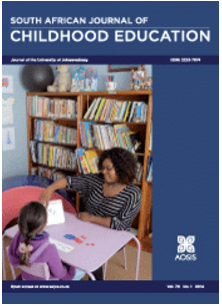Teaching in inclusive classrooms: policy versus implementation

Type
Thesis
Authors
Category
ECCE, Foundation, Intermediate
[ Browse Items ]
Publication Year
2012
Publisher
North West University, Potchefstroom, South Africa
URL
[ private ]
Pages
286 p.
Subject
Early childhood education, Primary education, Foundation Phase, Intermediate Phase, Inclusive education, Policy, Implementation, South Africa
Tags
Abstract
Inclusive education occupies a central place in the education policies of South Africa (SA, 2001). This study explored whether the principles of inclusive education as set out in White Paper 6, are becoming a reality in primary school classrooms in South Africa. A literature study was undertaken to highlight the importance and the policy initiatives and principles of inclusive education. The literature review provided the framework for designing the interview questions that were utilised to gauge the perceptions and experiences of teachers regarding the implementation of inclusive education by means of focus group interviews. By means of a qualitative, phenomenological study, the focus group interviews were conducted with a convenient and purposively selected sample of primary school teachers (n = 18) in the Johannesburg South District of the Gauteng Department of Education. The interview data revealed that teachers do have an understanding of the importance of inclusive education, and appear to be knowledgeable on what the inclusive education policy entails. Furthermore, the teachers attempt to provide differentiated teaching, learning and assessment to address the wide variety of learning barriers in their classrooms. However, comprehensive knowledge about the wide variety of strategies to accommodate all learning needs appears to be lacking. The teachers noted that their training, resources and facilities are not adequate for the effective implementation of the policy principles in South African classrooms. The findings revealed that although the inclusive education policy is positively accepted by the teachers, its implementation appears to be superficial due to the cited challenges faced by the participants. The study is concluded with recommendations on how to promote the implementation of the challenging inclusive education policy principles in order to minimise the gap between policy and implementation.
Number of Copies
1
| Library | Accession No | Call No | Copy No | Edition | Location | Availability |
|---|---|---|---|---|---|---|
| 1 | Potchefstroom, North West Province, South Africa | Yes |
